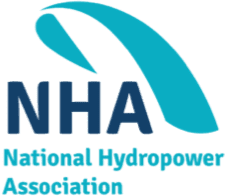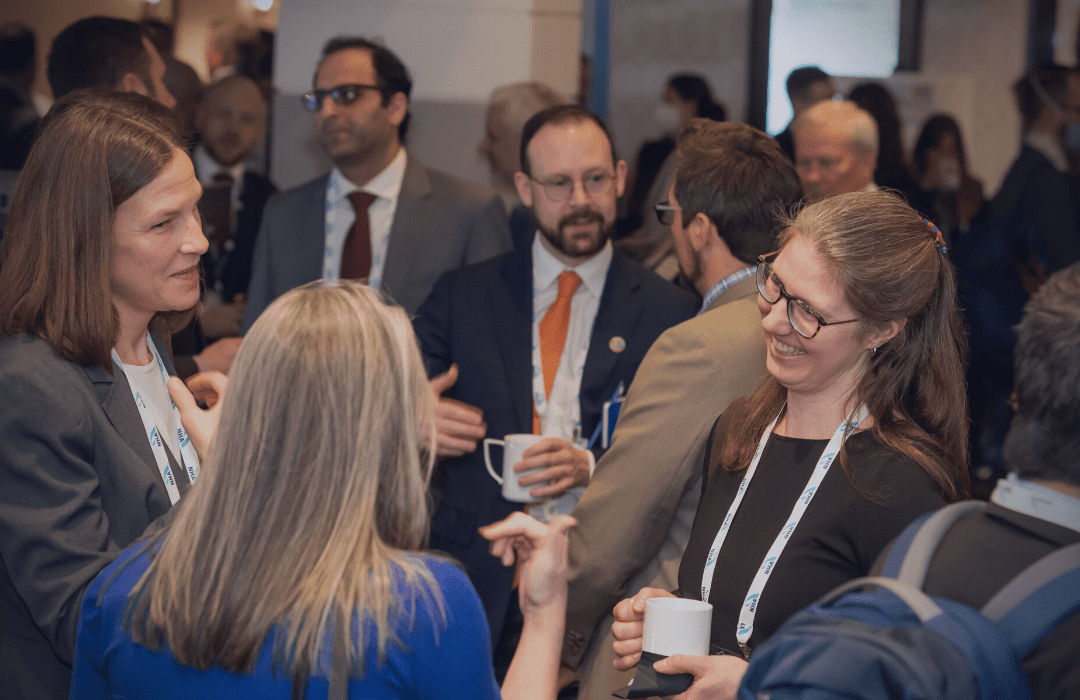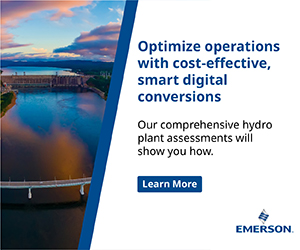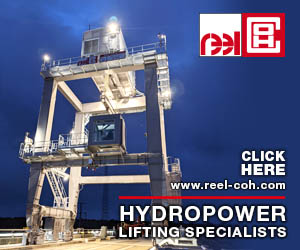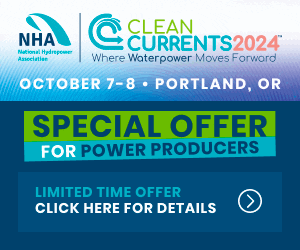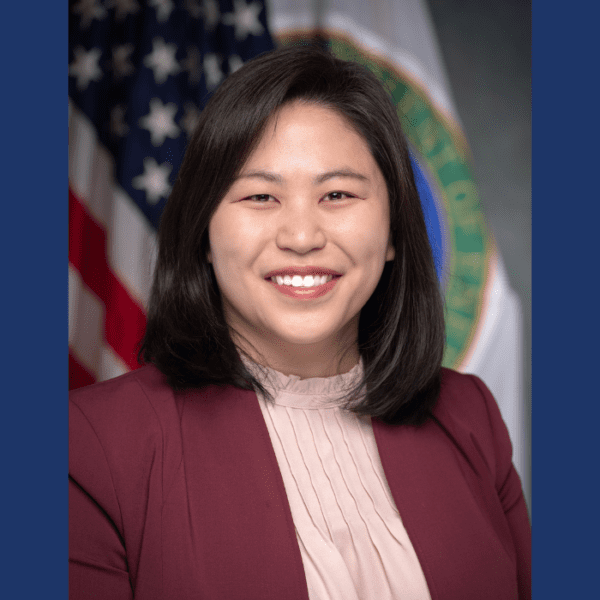I began my role at the National Hydropower Association (NHA) only a month before the Waterpower Week in Washington annual policy conference (held April 5-7, 2022). The only prior knowledge of the event I had was shaped by what I had gleaned from conversations with NHA staff, articles, and research.
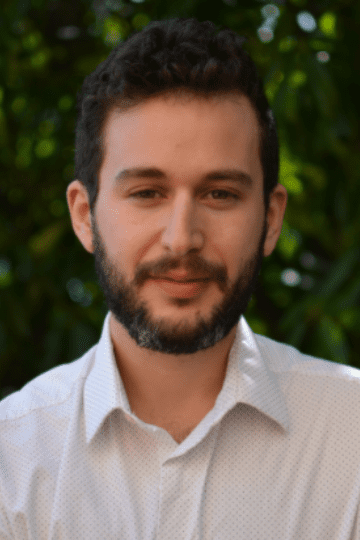
The pandemic had forced NHA, the event’s owner and organizer, to cancel in 2020 and meet virtually in 2021, so its return in person in Washington, D.C., in April 2022 was enthusiastically welcomed. Over 450 participants registered for the conference – a total rivaling the highs of previous years; people were excited.
With speakers such as Malcolm Turnbull, the former prime minister of Australia, and Richard Glick, chairman of the Federal Energy Regulatory Commission, Waterpower Week offered participants the opportunity to hear from high-level policy makers about how conventional hydro, pumped storage, and marine energy are critical to a carbon-free future.
As someone new to the industry, I relished the chance to expand my knowledge, and Waterpower Week delivered. Whether it was sessions covering communication and engagement techniques or the fantastic speakers and energy at the Women in Waterpower Breakfast, the conference brimmed with content.
When Waterpower Week ended on April 7th, I was amazed by what I had learned. Going into the conference, I was a stranger to some of the acronyms and concepts that flew around the event with staggering speed. Not only were there new ideas for me to sink my teeth into, but I had met some amazing individuals who were striving for enormous change.
I didn’t realize how much I had taken away from the Waterpower Week conference until I was explaining to a friend the importance of a black start – the process of restoring an electric grid to operation without external power transmission. He looked at me surprised when I told him I hadn’t heard the term until days prior.
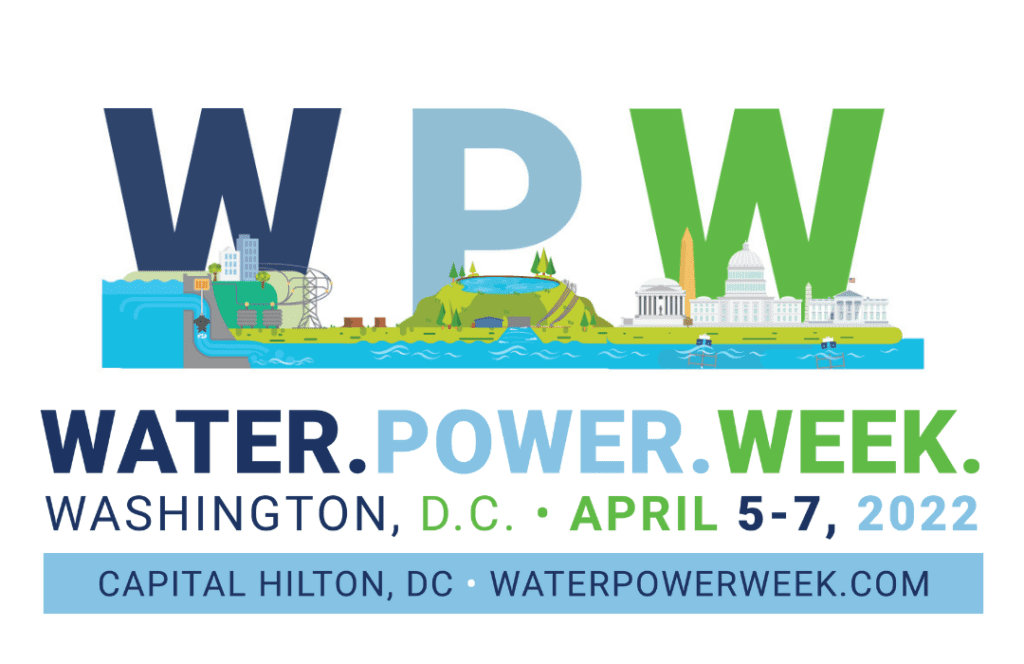
Having attended close to 20 sessions in three days, I walked away from the Waterpower Week in Washington conference with a few observations:
Forging Partnerships
One of the great benefits of an in-person Waterpower Week was the opportunity to make connections with fellow attendees. Whether you were trading business cards, networking in the hall after a session, or engaging with speakers during a Q&A, the emphasis placed on interaction was paramount.
Engagement takes many forms, and one of the stand-out aspects of the conference was the focus on dialogue. Having attended the “Tribal Consultation and Collaboration” session, I appreciated the openness of the event. With a focus on learning how to consult and collaborate with tribes, the excellent panel of speakers – both tribal representatives and industry professionals – laid out in clear terms what does and doesn’t work when negotiating. Nicole Fabbro, who represented Ontario Power Generation (OPG), provided important insight into how OPG works with First Nations’ communities while Mary Pavel, an attorney at Sonosky, Chambers, Sachse, Endreson & Perry, LLP, masterfully facilitated the conversation.
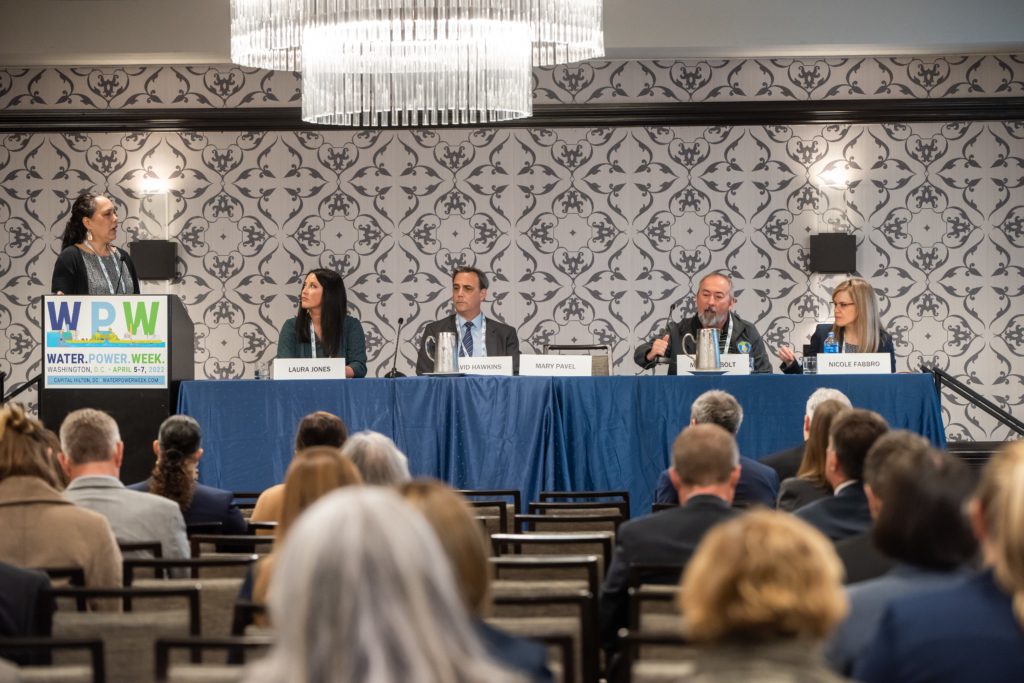
Informing one’s perspective by learning from the experience of others is key to developing complete understanding of a topic, and the session “Opportunities and Challenges for Waterpower Globally: What Can We Learn from Successes around the World?” exemplified that exchange. With speakers from The World Bank, European Marine Energy Centre, and the International Hydropower Association, the discourse provided critical updates and insights into waterpower on an international scale. Attendees were able to learn about the development of pumped storage and marine energy, and in doing so, they gained awareness about how U.S. companies are uniquely positioned to contribute to this growth.
Shaping Policy
Change cannot occur without action. In that respect, the location of Waterpower Week at the Capital Hilton in Washington D.C. was strategic. Mere blocks from the White House, and within walking distance to the United States Capitol, attendees of Waterpower Week were able to interact with Congressional members, regulators, and other high-level individuals from across the government and energy sectors. Representatives like Congresswoman Kim Schrier of Washington State, Congresswoman Ann McLane Kuster of New Hampshire, and Congressman Dan Newhouse of Washington State were just a few of the special guests who attended Waterpower Week.
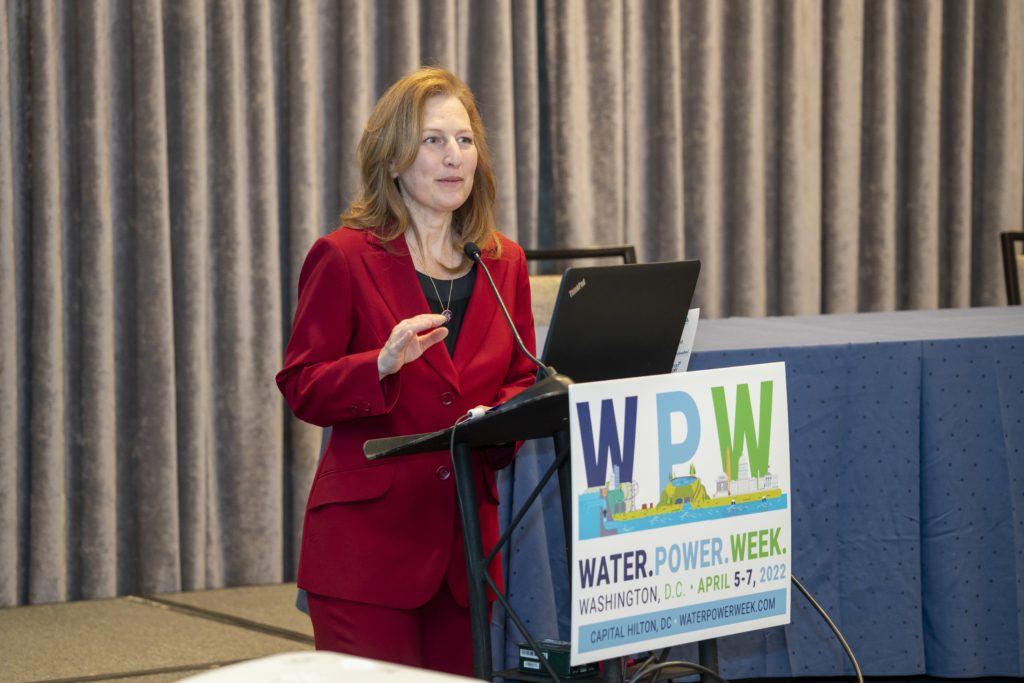
While important dialogue occurred during the sessions and in the hallways at Waterpower Week, NHA also arranged a half day for advocacy and outreach to Congress, to federal resource agencies, and to the U.S. Department of Energy, including setting up outreach, scheduling, and providing participants with talking points to share with Congressional members. By enabling these opportunities, attendees were able to raise their voice and educate policymakers about the needs of the waterpower industry. Over the course of Waterpower Week, 49 meetings occurred with offices of U.S. Senators and Representatives.
The attendees at Waterpower Week are not strangers to policy dialogue. The day before Waterpower Week began, a coalition of conservation organizations, hydropower industry groups, and Tribes sent a package to Congress and the White House to improve hydropower licensing, relicensing, and the license surrender processes. The proposed amendments would allow work toward restoring autonomy and self-determination for Tribal Nations, as well as address climate change, better protect the nation’s rivers, and provide Tribes authority of their lands and waters. Mary Pavel, former staff director of the Senate Indian Affairs Committee, said in reference to the Federal Power Act amendments, “This proposed package is an important next step in recognizing Tribal sovereignty over Tribal lands, and trust resources.”
Changing with the Times
The waterpower industry is ripe with innovation. Rising to meet the challenges of tomorrow, the attendees at the conference engaged with sessions covering the need for investment in pumped hydro, long-term energy storage, and cutting-edge wave energy generation devices – to name a few.
The desire to remain current concerned not only technology but the environmental realities facing humanity. It was refreshing to hear the challenges posed by climate change addressed so frankly, as the attendees understood both the necessity of the moment and waterpower’s role in achieving a carbon-free future.
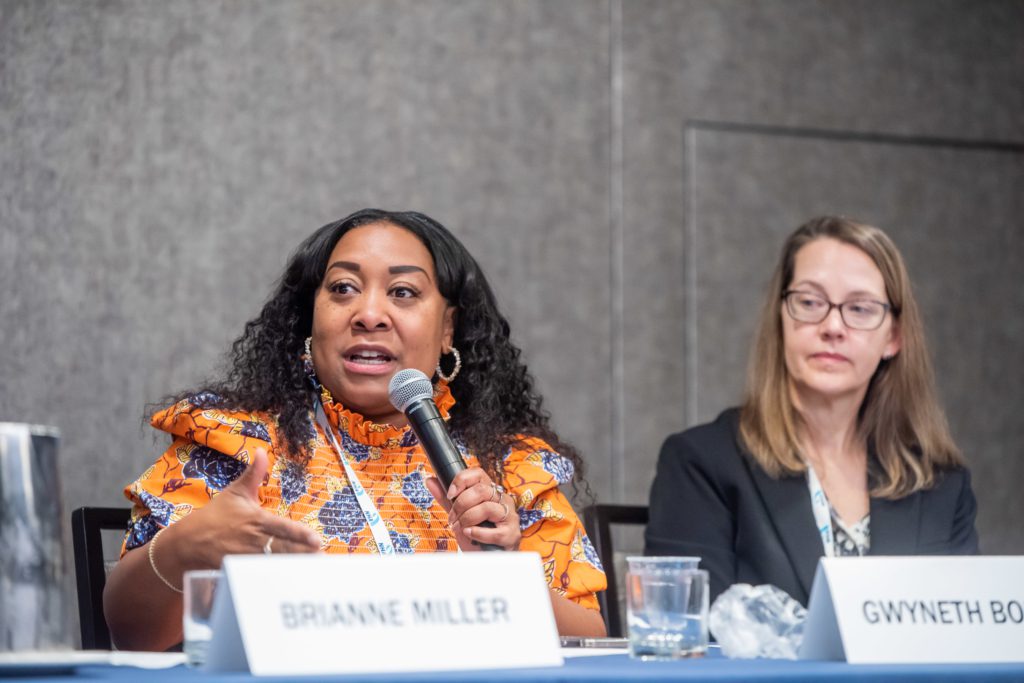
Sessions like “Marine Energy: Path to Commercialization” and “A Conversation with Federal Resource Agencies – What’s New? How about New Technology?” represented a sampling of the dialogue concerning the role technology and creativity play in the future of waterpower. Enhanced by the quality of speakers, the sessions were excellent learning opportunities for industry veterans and newcomers alike.

And, the learning will continue later this year. Waterpower Week in Washington is one of two national events owned and organized by the National Hydropower Association (NHA). While Waterpower Week focused on policy-related topics, NHA’s upcoming Clean Currents tradeshow and conference, October 18—20, 2022, in Sacramento, California, offers the opportunity to both continue and expand on the innovation and technology conversations. With sessions that include a focus on new ideas and engagement with cutting-edge technology, Clean Currents promises a natural extension of the momentum that began at Waterpower Week.
Both the active and passive learning an attendee experiences at NHA’s national events (Waterpower Week and Clean Currents), as well as the association’s Regional Events series, is a testament to the passion of the participants, knowledge of the speakers, and the hard work of the association and the volunteer committees to connect the pieces and form cohesive, successful conferences.
These in-person events are special because they fully immerse attendees in an environment filled with community and connection. They elevate important discussion, provide room for communication, and encourage the transfer of ideas to promote growth in the waterpower industry.
As a newcomer, I left Waterpower Week with knowledge I couldn’t have received anywhere else, and I’m looking forward to seeing familiar faces and meeting new ones when I attend Clean Currents in October.

